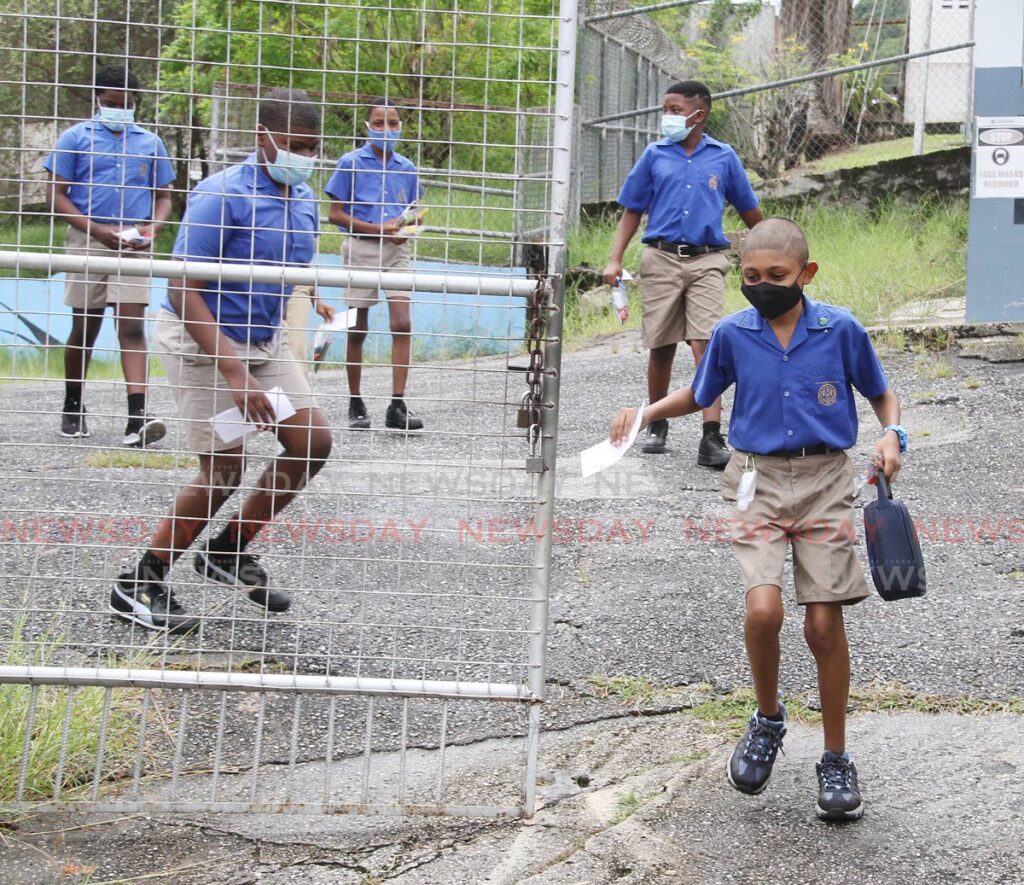Clinical psychologist: Return to classroom good for children's mental health

CLINICAL psychologist Alicia Hoyte is supporting the return of children to physical school in the interest of their well-being and mental health.
The Ministry of Education is facilitating the return to the physical classroom, next Monday, for forms one to three students and primary school children who are writing the Secondary Entrance Assessment (SEA) exam.
Forms five and six students are already in school.
There has been some resistance by stakeholders who question whether proper health protocols are in place especially with the highly transmissible omicron variant of the covid19 virus becoming entrenched in TT.
Hoyte said returning to the classroom is good for children’s mental health.
“Online learning cannot replace our teachers. I would like to encourage those involved in telecommunications to support the in-person experience and add to its effectiveness for our children.”
She was one of the panellists at a virtual ICT in Caribbean Education forum hosted by the Caribbean Telecommunications Union (CTU), in partnership with the International Telecommunication Union (ITU) and UNESCO with the support of the OECS on Thursday.
In a release, the CTU said mental health resonated with participants on the second day of the forum. The discussion focused on how the pandemic has transformed the delivery of education, forcing educational institutions to utilise online learning platforms.
The participants agreed while this in itself has its benefits, the commensurate challenges of online learning have had an impact on mental health.
The World Health Organization (WHO) has defined mental health as a state of well-being in which a person can realise their potential and abilities, cope with normal life stress and contribute meaningfully to the community.
Participants learned that while online learning offered users flexibility, autonomy and access to a variety of educational resources, it lacks the aspect of physical interaction that is so important for learning and the social development of children.
Hoyte, representing Trinidad and Tobago, highlighted the impact of online learning on the mental health and well-being of students, which include: learning disrupted by socio-economic factors, increased exposure to online dangers, developmental challenges, and emotional and psychological distress.
She outlined the damaging impact of digital learning on parents and, by extension, educators.
“Parents have been pushed to the fore as teachers, ill-equipped and ill-prepared, whilst at the same time being burdened with all the other effects and impacts of this pandemic. Parents are also dealing with their poor mental health on top of the grief and stress of managing a family with a child online, with their limited technical skills and resources.”
Participants also discussed issues centred around the protection of children and youth from harmful online content.


Comments
"Clinical psychologist: Return to classroom good for children’s mental health"